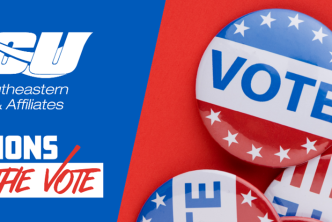| There is just one week remaining in the 2018 Legislative Session and a lot left to accomplish, primarily passing the state budget. Lawmakers made progress on budget negotiations last week when they began hammering out program area allocations. Because of Florida’s required 72-hour budget cooling off period, the budget must be placed on the desk of lawmakers no later than tomorrow for session to end on its scheduled March 9 sine die.
Much of the attention in Week 8 was on responding to the tragedy at Marjory Stoneman Douglas High School. The House and Senate have bills that differ from one another, but both appropriate $400 million to implement school safety changes; final details will be worked out separately from the budget conference. With only five days to go in the legislative session, state senators debated into the weekend, holding a rare Saturday session that lasted eight hours. The Senate is expected to vote on the legislation today with the House set to take up the bill next.
A proposal to add a standalone high school financial literacy class to Florida’s course offerings is ready to be heard on the House floor. Unlike the Senate version, which would make the course a graduation requirement, HB 323 by Rep. Heather Fitzenhagen (R-Fort Myers) would establish the program as a voluntary elective for students. The Senate companion bill, SB 88 by Sen. Dorothy Hukill (R – Port Orange) passed the full Senate the first week of session.
HB 953 by Rep. Shawn Harrison (R – Tampa) passed the full house and will be heard on the Senate floor this week, most likely tomorrow. This legislation would allow a data breach victim or a consumer wanting to protect themselves from fraud to freeze their credit report without paying a fee. Florida law currently allows credit report agencies to charge a fee of up to $10 to freeze credit reports, and data breach victims are required to submit paperwork to prove their identity is in jeopardy to avoid paying the fee. The Senate companion is SB 1302 by Sen. Jeff Brandes (R – St. Petersburg) and this measure is a priority of Chief Financial Officer Jimmy Patronis and Commissioner of Agriculture Adam Putnam.
A bill backed by the payday lending industry that would essentially allow payday lenders to skirt the CFPB’s small dollar loan rule took one step closer to becoming Florida law. SB 920 by Sen. Rob Bradley (R – Orange Park), passed the full Senate over the weekend on a 35-5 vote. The companion, HB 857 by Rep. Jamie Grant (R – Tampa) is ready to be considered by the full House. The League, alongside other stakeholders, has expressed its strong opposition by testifying in committee, asking credit union advocates to appear in committee, and sending action alerts urging credit union members to contact their lawmakers in opposition of the bill.
In the final week of the legislative session only 38 bills, of the more than 1,700 filed, have passed both the House and Senate. As a comparison, last year 211 bills were passed — the fewest in at least 20 years. 2018 is on track to break that record.
If you have any questions, please contact any member of your Advocacy Team:
Jared Ross, SVP of Association Services
Jennifer Martin, Senior Director of Governmental Affairs
Jordan Burroughs, Political Affairs Coordinator |





